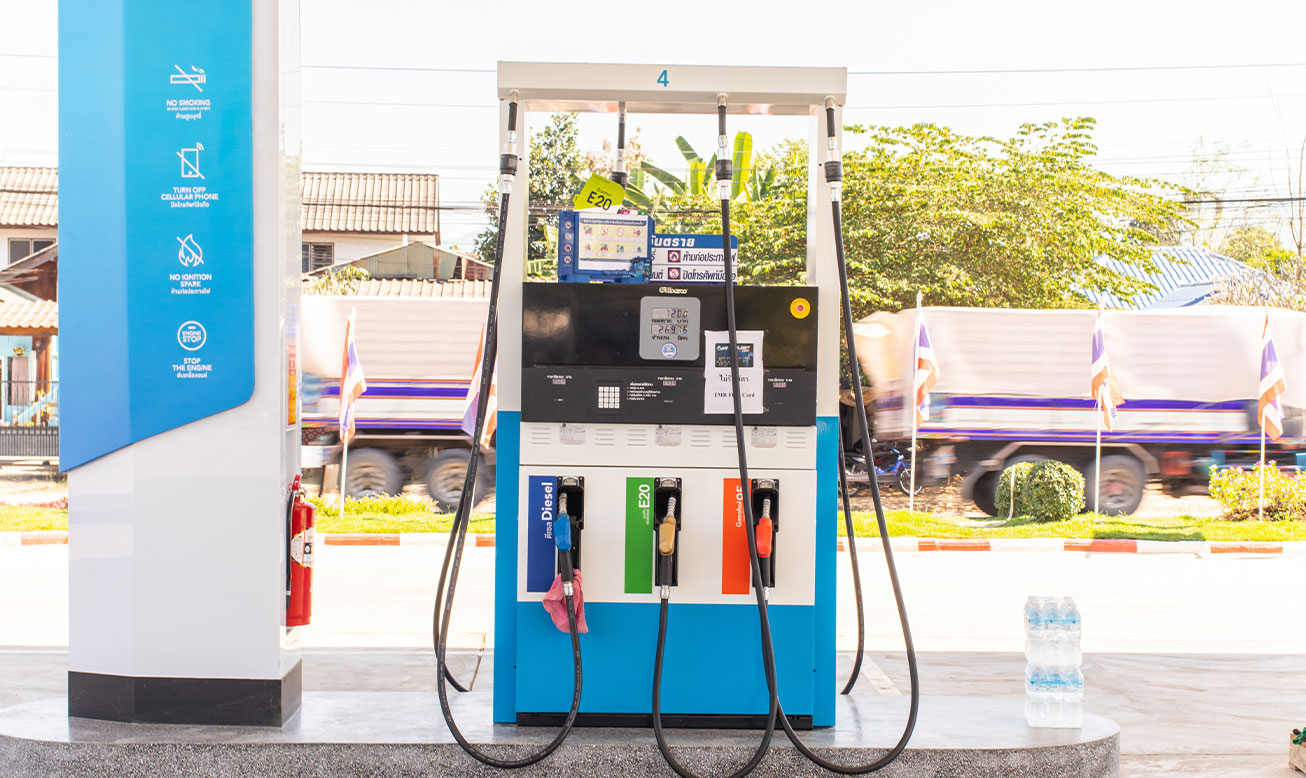July 27, 2025
Diesel Shortage. Is Renewable Fuel the Future?
The diesel shortage has become a headline issue across the American supply chain. Whether you are a freight broker, shipper, or just keeping an eye on fuel prices, the question is on many minds: Is a diesel shortage coming? If so, what will happen, and what can businesses do now to prepare?
As a non-asset-based carrier, Last Mile Logistics provides transportation solutions that rely on strong networks and smart planning, not ownership of fleets. This gives us a broader, more adaptable perspective during fuel-related challenges. Here is what companies need to know about the current diesel shortage update, what it means for your operations, and how we can work together to keep your freight moving.
What Is Diesel Fuel?
Diesel fuel is a liquid energy source derived primarily from the distillation of crude oil, although biodegradable fuel sources are now emerging as viable alternatives. Also known as diesel oil, it powers most heavy-duty engines used in trucking, shipping, agriculture, and construction.
One of diesel’s advantages is its energy density. It provides more energy per gallon than gasoline, making it the go-to option for high-efficiency engines in long-haul freight and commercial machinery. Diesel engines typically get better mileage and offer greater torque than gasoline-powered counterparts.
What Is a Diesel Shortage?
A diesel shortage happens when the available supply of diesel fuel falls below market demand. Over the present decade, multiple global events have squeezed supply and pushed prices higher, raising concerns that the issue could intensify.
So, is a diesel shortage coming? In many ways, it is already here in pockets of the country and abroad. While the United States is not expected to run out of diesel, the challenge lies in regional availability and skyrocketing costs.
Key Factors Behind the Diesel Shortage:
- Reduced refinery capacity due to shutdowns or conversions to renewable energy processing
- Ban on Russian diesel imports, removing a major supplier from the global market
- Increased domestic demand, especially from the agriculture, freight, and manufacturing sectors
- Ongoing diesel exports, which reduce the available supply at home
- Federal and environmental regulations that affect refinery operations and emissions targets
When diesel supply tightens, prices climb. This results in higher transportation costs for shippers and slimmed margins for carriers. For sectors like food, construction, and retail logistics, these impacts can ripple across the entire supply chain.

Diesel Shortage: What Will Happen?
While total fuel depletion is unlikely, diesel shortages will lead to strategic rationing, increased shipping costs, and logistics delays in some areas. Large buyers and mission-critical industries will still get access to fuel, but at a premium cost.
For small to mid-sized businesses, the real effect is economic. High diesel prices mean higher freight costs, which are often passed down into the supply chain, ultimately reaching consumers, with a direct impact on profit margins and delivery timelines.
From a freight management perspective, securing reliable transportation under these conditions requires flexibility, real-time data, and access to multiple carriers. This is where non-asset-based logistics providers have an advantage.
How Non-Asset-Based Carriers Mitigate Diesel Shortage Risk
At Last Mile Logistics, we do not operate our own trucks. Instead, we work with an extensive network of approved carriers across the country. This model gives us agility when fuel supplies tighten. We are not locked into one fuel vendor or one fleet; we go where the capacity and pricing are most favorable.
Here is how our model protects shippers during a diesel shortage:
- A scalable carrier network allows us to shift freight away from diesel-intensive routes or partners
- Rate forecasting tools help clients lock in favorable contracts before fuel prices spike
- Fuel surcharge management ensures transparent billing tied to industry benchmarks
- Alternative route planning reduces miles traveled and improves cost-efficiency
We also work proactively with our transportation partners to develop cost-effective strategies that keep freight moving, even when fuel markets are volatile.
How to Prepare for Diesel Supply Challenges
Companies should focus less on trying to prevent a diesel shortage and more on how to prepare for diesel volatility. Supply disruptions are difficult to control, but how you respond to them is not.
Here are some effective ways to reduce risk:
Optimize Your Supply Chain
Use freight analytics tools to identify inefficiencies, improve route selection, and monitor carrier performance. Operational delays cost more during a diesel shortage, so streamlining is essential.
Diversify Transportation Options
Lock in Fuel-Sensitive Rates
Consider working with providers who offer rate stabilization options tied to fuel indexes. Securing these rates now can help mitigate surprises down the road.
Track the Diesel Shortage Update

What Are the Alternatives to Diesel Fuel?
One bright spot amid the fuel challenge is the growing range of alternative fuels. The logistics and transportation sectors are starting to explore renewable fuel sources that can reduce dependence on diesel.
Here are some of the types of fuels gaining traction:
Methanol – A low-emission fuel with high hydrogen content. It is biodegradable and easier to store than traditional fuel.
Ethanol – Produced in integrated biorefineries, ethanol can reduce greenhouse gas emissions by up to 87 percent compared to diesel. It is already widely used in blends with gasoline.
Hydrogen – A strong contender for the future of commercial fleets. Hydrogen produces only water vapor when burned in fuel cells. It has the potential to eliminate GHG emissions but requires significant infrastructure development.
Natural Gas – Emits 50 to 60 percent less carbon dioxide than diesel. However, it is volatile to transport and needs specialized vehicles.
Ammonia – Still in early research stages due to safety concerns, ammonia could become a low-carbon fuel for marine and long-haul applications in the future.
These biodegradable fuel options represent the long-term direction of the industry. While not yet mainstream, their adoption will likely accelerate as diesel prices remain unpredictable.
Freight and Fuel Outlook: Adaptability Is Key
The diesel shortage is not a mere fuel supply issue but a logistics challenge. From pricing to carrier availability, every link in the supply chain must evolve to remain effective under pressure.
At Last Mile Logistics, we are committed to helping clients manage fuel volatility with transparency, agility, and strategic planning. Our non-asset-based model gives you access to diverse transportation solutions, ensuring your freight keeps moving no matter what the fuel market does next.
If you are concerned about rising costs or shipment delays, now is the time to start planning ahead. Let us help you develop a logistics strategy that prioritizes cost-efficiency and reliability.
Contact Arnie today to discuss your freight needs and explore ways to protect your operation from diesel market swings.

